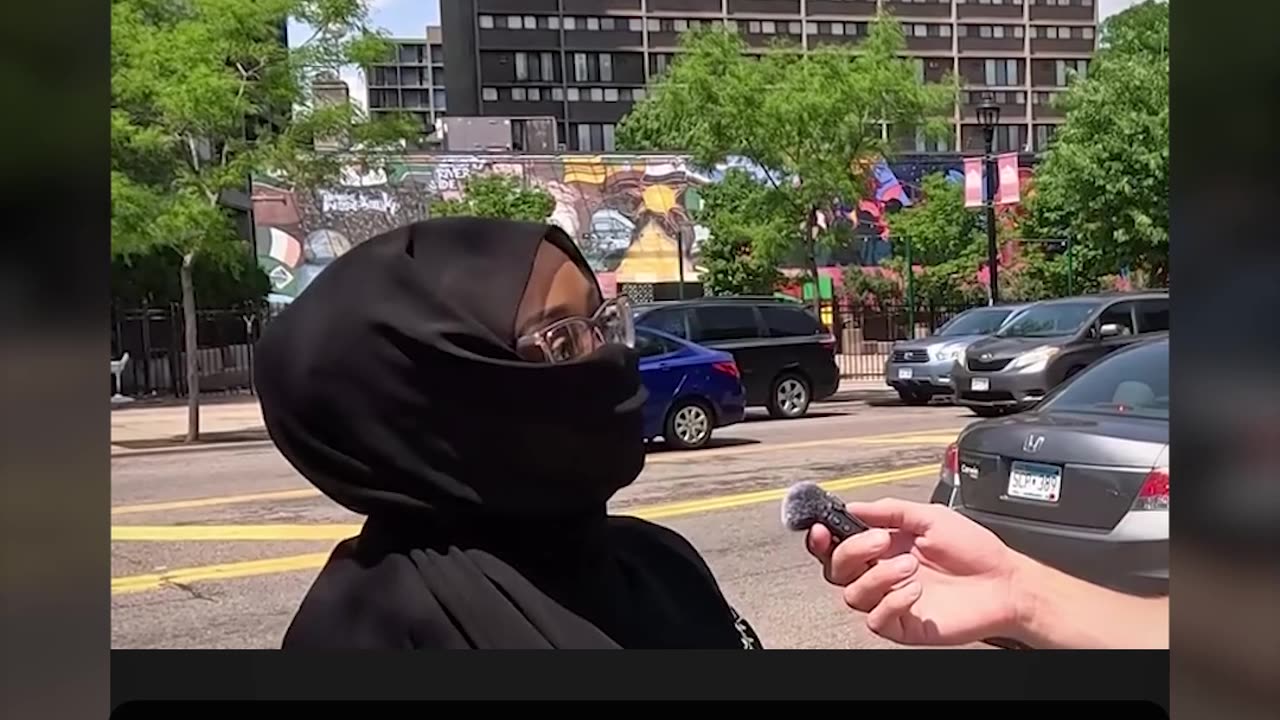Premium Only Content

Islam mosque have seen a 200% increase in the US since 2000
Islam mosque have seen a 200% increase in the US since 2000
In the last 25 years, the United States has experienced a religious shift that few media outlets dare to fully address: the presence of Islamic mosques has increased by 200% since the year 2000. This is no small figure, as it reflects not only demographic growth but also a cultural and social transformation that raises legitimate questions about the future of faith and values in the nation. While attendance at Christian churches has declined in many areas, Muslim communities have seen steady growth fueled by immigration, conversions, and natural population expansion.
In a recent interview with a Muslim woman in the United States, a question was raised that, although uncomfortable for many progressive media, is central to understanding this trend: Could Islam surpass Christianity in the number of followers in the country? The answer was clear: “Worldwide, not just in the United States. We have people converting every day.” This statement reflects an internal confidence in the growth of the Islamic community and the expansion of its faith, something that contrasts with the decreasing commitment of many Americans to their Christian heritage.
One of the most controversial points discussed was the misconceptions about Islam in the U.S. According to the interviewee, one of the most common is the belief that Muslim women are oppressed. However, the view from within is different: for many, wearing the hijab is a personal decision and an act of faith. She explained that she began wearing it at the age of 16 and that if she stopped, nothing would happen. Yet this point sparks debate, as in several Islamic countries, not wearing the veil does carry penalties—something that in the U.S. is presented as “personal freedom” but still holds strong religious roots.
The conversation also touched on aspects of Islamic social norms, such as the prohibition for a woman to shake hands with a man who is not a family member. While in American culture this may be seen as distant or even discriminatory, in Islam it is considered “normal” and part of the code of conduct. These cultural differences, though legitimate under religious freedom, represent a clash of customs that does not always blend smoothly in a nation built on Judeo-Christian values.
Another topic brought up was the practice of polygamy in certain interpretations of Islam. While not common in all Muslim countries, it remains part of religious teaching for some groups. The interviewee admitted that her religion allows it, and when asked about accepting another wife in her marriage, she replied, “In our religion, it says…,” suggesting that acceptance of this practice depends more on doctrinal framework than personal choice.
These types of responses make it clear that, while Islam in the U.S. presents itself as a religion adapting to the country’s legal and cultural framework, it maintains elements that conflict with the values and traditions that have defined the nation for centuries. The exponential growth of mosques and Muslim followers raises the question many prefer to avoid: Are we witnessing a religious shift that, if it continues, could displace Christianity as the majority faith in the United States?
History shows that a nation’s dominant faith profoundly influences its laws, culture, and way of life. In this sense, the expansion of Islam is not an isolated or merely spiritual phenomenon but a cultural shift with long-term implications. And while in some sectors of American Christianity faith is weakened by relativism and lack of commitment, Islam advances with a discipline and cohesion that its own leaders recognize as its greatest strength.
#Hashtags
#IslamInUSA #Christianity #Religion #IslamicGrowth #FaithAndValues #Culture #Hijab #Polygamy #ReligiousFreedom #Mosques
-
 0:50
0:50
Gateway Hispanic
7 hours agoTrump celebra la reducción en el costo de la cena de Acción de Gracias
2 -
 LIVE
LIVE
Dr Disrespect
10 hours ago🔴LIVE - DR DISRESPECT - ARC RAIDERS - AGAINST ALL DANGER
1,392 watching -
 1:21:57
1:21:57
Roseanne Barr
21 hours ago“Central Banking: The Hidden Empire” W/ Mel K | The Rosenne Barr Podcast #122
122K97 -
 LIVE
LIVE
SpartakusLIVE
8 hours agoTOXIC Solos on ARC Raiders || Friday Night HYPE - WZ or Redsec Later?
110 watching -
 1:19:42
1:19:42
Russell Brand
5 hours agoTHE LEFT’S NEW STAR — What Zohran Mamdani’s Victory Really Means - SF647
132K33 -
 1:42:32
1:42:32
vivafrei
10 hours agoLive w/ Stanislav Krapivnik - Military and Political Analyst on Russia, Europe & Beyond!
68.7K36 -
 3:10:06
3:10:06
LadyDesireeMusic
3 hours ago $0.07 earnedYour Daily White Pill- Music & Convo
25.2K1 -
 LIVE
LIVE
StoneMountain64
7 hours agoBattlefield REDSEC UNSTOPPABLE WIN Squad
100 watching -
 1:40:36
1:40:36
The Quartering
7 hours agoKimmel Pulls Show Mysteriously, Youtube Collapse? & Much MOre
123K63 -
 LIVE
LIVE
cosmicvandenim
7 hours agoCOSMIC VAN DENIM | OFF CHARACTER | WARZONE PRACTICE
46 watching